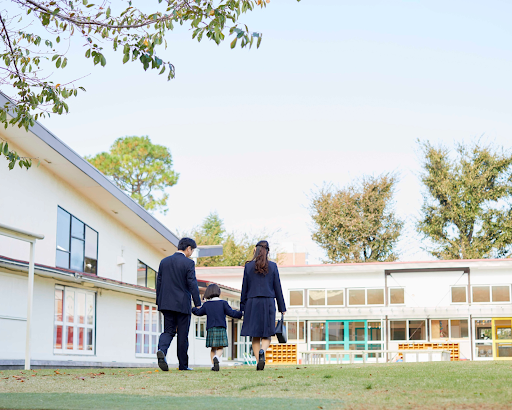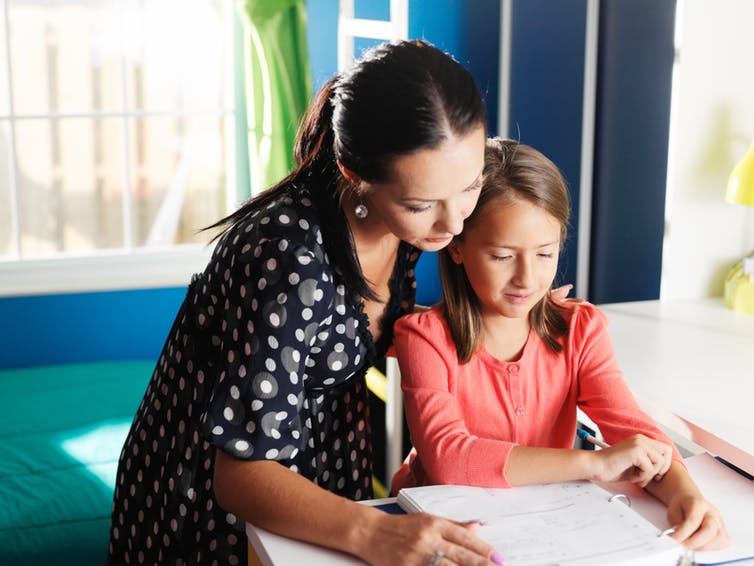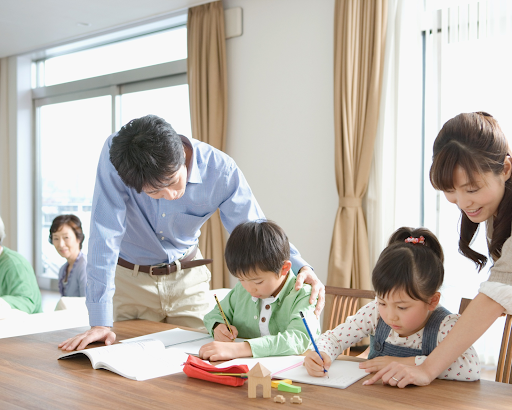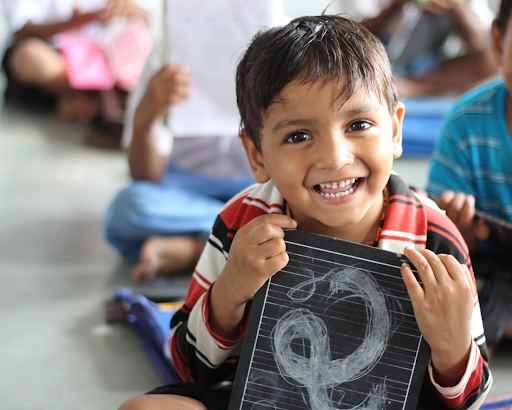parental involvement in education and the role of parents in school management, and teachers play a collective role in ensuring the growth and development of children in all spheres of life. Specifically, the stakeholders play a significant role in achieving students’ educational goals and the school’s overall management. However, most parents don’t participate in this demanding duty, leaving the teachers to shoulder the responsibility. Many parents may not be aware of the impact their involvement can have on school functioning and student development.
What Role Does Parental Involvement in Student Success Play in Academics?
Many parents don’t understand the impact of their presence on the student’s mental health, particularly in terms of the motivation to work and make them proud. As a result, most of the population has believed that money provides all that they might be unable to offer, leading to an increase in the levels of parental negligence. If you are one of such parents, then this article might be useful in increasing your awareness of the high calling to guide your children towards academic success.
What is the role of parents in school improvement? What is the Importance of Parental Involvement in School Improvement?
The role of parents in school management spans multiple domains. This aspect is true and vital since they are the primary decision-makers and core stakeholders in the school’s running. The following are some of the responsibilities parents play towards improving the school:
Development of the Governing Policies
Parents must ensure that the school management works within the stipulated laws. Based on this, they have to work through the Parent Teacher Association, which in most cases operates as a policy development group and a delegative representation of the guardians. The committee spearheads reforms in the school environment to ensure the students are safe as they pursue their ambitions.
Keeping Track of the Performance of the Children
Performance is of utmost importance when it comes to education. In particular, the employment sector is based on merit, meaning that students must work hard to acquire the skills that make them employable. However, this is impossible if the parents don’t take up their role to monitor the performance and contribute to the policies that would change the trajectory of things. Hence, it is in the student’s interest that parents be vigilant in calling for reforms to see individual learners’ performance go up.
Paying the Required Funds
Schools have various economic burdens that they seek to address. In this regard, the monetary contribution from the parents goes a long way in helping these institutions achieve their objectives, more so in terms of making the learning environment more conducive for the students. As a result, parental engagement in schools must embrace the role of paying school fees and other charges as might be decided from time to time.
Academic Achievement and Student Success
Academic performance and achievement are multidimensional notions that involve many aspects of the educational journey of a student. Academic accomplishment is often defined as the showing of knowledge, abilities, and competencies in academic topics, which are frequently assessed using grades, scores from tests, and other assessments. Student achievement, on the other hand, encompasses more than just academic accomplishment; it also includes general well-being, development as an individual, and the learning of skills that lead to a satisfying and fulfilling existence.
Several factors influence academic attainment and student success:
- Effective Teaching and Learning
Academic attainment is boosted by high-quality instruction and engaging learning settings. Effective teaching approaches, helpful educators, and efficient curricula all help students succeed.
- Education Resources and Infrastructure
Access to proper resources, such as texts, technology, and educational institutions, is critical for academic success. Well-equipped classrooms promote a good learning environment.
Read: 7 Tips to Make This School Year Successful
Improved School Climate and Community Relationships
Enhanced educational environments and community partnerships are critical components in creating a good and productive learning environment. School environment alludes to the overall climate and culture of a school, which incorporates qualities like connections, security, consideration, and the overall well-being of students and staff. Community connections refer to contacts and collaborations between institutions and the wider community that they serve. Both factors play important roles in defining the entire learning process and outcomes. Here are some significant advantages and ways to improve the school atmosphere and local relationships:
- Positive Learning Environment
A pleasant school climate promotes a caring and supportive atmosphere for learning, which improves student involvement and academic achievement.
- Improved Well-being
Students and staff flourish in a setting that prioritizes their happiness. A healthy school atmosphere improves mental health, lowers stress, and develops a sense of connection.
Enhanced Communication Between School and Home

Improved parent-teacher communicationis critical to creating a positive and cooperative learning environment. Effective interaction promotes the connection between instructors, pupils, and parents, resulting in higher student achievement and overall satisfaction with school. Here are the primary benefits and solutions for improving interaction between classrooms and homes:
Benefits
- Improved student performance
Regular and constructive communication keeps parents updated on their child’s academic development, enabling prompt action and assistance, perhaps leading to increased student achievement.
- Increased parental involvement
Open correspondence empowers guardians to be effectively associated with their kids’ schooling. Support in school activities, gatherings with guardians and educators, and chipping in upgrades the educational experience.
Offering Advice on the Various Ways to Use When Dealing With Unprecedented Events in the School Environment
There are times when the school might face serious issues, leading to a reduction in the quality of service. In such instances, the parents must provide the necessary support, particularly regarding remediation measures, to ensure the students are safe and ready to learn. In some cases, the parents might decide to offer free services to the schools to help cut off on the expenses of hiring other professionals.
Providing a Conducive Learning Environment for Students at Home
Part of academic guidance and parent involvement in educationthat aligns with the school objectives is to provide the students with a proper learning environment while at home. It is one of the strategies that ensure the learner can fulfil the demands of the academic program, particularly through assignments.
Parents can also support their children by offering direct help or working with tutors when needed, while maintaining active engagement in their overall academic responsibilities.
Also, Read our Blog Importance of Games and Sports in Students’ Life
Role of Parents in School Discipline
The role of parents in school management goes beyond finances and providing ideal study environments for their children. It extends to include checking on the discipline cases in the learning facility to ensure the students emerge as responsible citizens. Some of the roles of parents in school discipline include the following:

Providing Parental Guidance
Guidance is a key role of parents in students’ lives. It includes providing the students with information to ensure they can live within the established social standards and ethics. Furthermore, the guidance center allows children not to stray off and get themselves in activities that can taint the reputation of either the school or the parents. Thus, guardians must try by all means to create close relationships with their children to make them comfortable sharing everything in their lives. Such a scenario enables proper upbringing and eradication of cases of indiscipline.
Decision-Making
One of the parents’ rights in school discipline is decision-making. It is the foundational determinant as to whether they get a chance to develop policies that guide the students toward the right path. In some instances, the parents have no option but to devise procedures to punish any instance of indiscipline in the children. However, such straps are impossible to make when the parents do not involve themselves in parent involvement in school management.
Communication
An effective parent-teacher communication system is a core component of school discipline. It allows the parents to relay their demands to the students and the teachers, informing proper behavioural conduct within the former. Additionally, proper communication presents a better chance for the parents to teach the students the value of being disciplined and the usual way of conduct.
What is the Importance of Parental Involvement in School Activities?

The following are some benefits of having active parents in school management:
It Contributes to Student Success
Increased parental involvement in school activities is a recipe for success. This is because the parents get a chance to monitor the students and are conversant with the curriculum. As a result, they are well-informed to provide the necessary guidance to the students and contribute to their academic journey.
It has Enhanced Parent-Teacher Satisfaction
Education is an environment that calls for massive collaboration between different stakeholders. As a result, involvement from each party breeds a sense of satisfaction, leading to a collaborative environment, hence better performance.
Improved School Climate
An environment where parents and teachers are concerned with the student’s welfare turns out to be very effective in imparting knowledge. Students feel safe and well taken care of. As a result, they can perform to the expectations of the parents.
Parents play a very critical role in school management. This article presents the parents’ role in child education. Hence, we believe it will be useful to most people and perhaps lead to a change in the school management procedures.
FAQs –
1. What role do parent-teacher associations (PTAs) play in school management?
Parent-Teacher Associations (PTAs) serve a significant role in school organisation by empowering a positive and helpful connection between teachers, guardians, and directors at schools. PTAs act as a significant correspondence channel between the educational organization and guardians, illuminating them about plans, undertakings, and events. Beyond interaction, PTAs aggressively promote parental involvement in all parts of school life, including activities, opportunities to volunteer, and processes for making decisions.
2. Why is parental involvement important in school management?
Parental engagement is essential for effective school administration since it improves children’s educational experiences and the general operation of the school. When parents are involved in the education of their kids, they form a collaborative relationship between their homes and schools, which fosters a conducive learning environment. Parents’ role in child education is to increase student academic achievement, attendance, and conduct. Their engagement gives significant insights into each student’s particular requirements and skills, allowing for more tailored and focused support.
3. How can parents and schools work together to improve school management?
Parents and schools may work together successfully to improve school administration by encouraging open dialogue, respect for one another, and common goals. Establishing frequent communication pathways, such as emails, emails, and meetings with parents and teachers, enables the open exchange of knowledge regarding school policy, activities, and student achievement. Participation by parents in decision-making processes, such as membership in parent-teacher organizations (PTAs) or school groups, ensures that varied viewpoints are addressed when developing school regulations.
4. What is the role of parental involvement in educational success?
Parental involvement in education contributes significantly to student development. Engaged parents help foster accountability and motivation in children. Their presence enhances emotional support and reinforces values taught at school, which is crucial for parental involvement in student success.
5. How does parent-teacher communication influence academic performance?
Strong parent-teacher communication ensures consistency between home and school expectations. It helps identify challenges early and provides tailored support for students. This alignment strengthens the student’s ability to succeed both academically and socially.
6. Why is parent involvement in education necessary in today’s time?
In today’s fast-changing academic environment, parent involvement in education ensures that students get emotional, educational, and behavioral support. As core stakeholders, parents are instrumental in shaping not just school policies but also student mindsets.
7. What are effective ways to increase parental engagement in schools?
Organizing regular PTA meetings, volunteer activities, and interactive workshops can increase parental engagement in schools. Schools can also facilitate consistent updates through digital tools, newsletters, and performance feedback channels.
Read More Posts:
50+ Mother’s Day Wishes and Messages To Send To Your Mom | Indian Diet Chart for 8 Months Baby | First Birthday Party Themes For Baby Boys in India | Safe Period Calculator | Baby Boy Names With Meaning | Top Facebook Groups For Indian Moms | Symptoms of Baby Boy During Pregnancy | 10 Month Baby Food Chart | Home Remedies To Treat Gas In Babies | Fancy Dress Ideas For Girls | 9 Month Baby Food Chart | Easy To Play Games For Kids | How To Teach Kids To Share | Best Boating Places In Bangalore | Fancy Dress Ideas For Kids | Home Remedies For Baby Hair Removal | Importance of Games and Sports in Student’s Life | Letter to My Son on his 11th Birthday | Role of Social Class in Parenting
- Baby Monitors with Noise Monitoring: How They Work and Why They Matter - October 2, 2025
- Attachment Parenting Guide: Principles, Practices, and What to Expect - September 9, 2025
- Understanding Your Baby’s Cry: A Parent’s Mini Guide - June 23, 2025
- Bottle vs. Breastfeeding: What Works for You and Your Baby - June 18, 2025
- 10 Yoga Poses For Kids at Home: Benefits Of Yoga For Kids - June 12, 2025
- Parenting Guide to Child Development: Key Milestones from Birth to 10 Years - June 4, 2025
- Summer Vacation Plans Ideas with Kids - May 27, 2025
- Nutritious Dried Fruit Treats for Toddlers (16–24 Months) - May 25, 2025
- Importance of Screen Time Management for Kids - May 24, 2025
- The 6 Most Common Pregnancy Concerns First-Time Moms Have - May 23, 2025
















